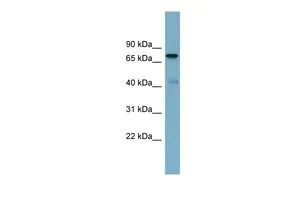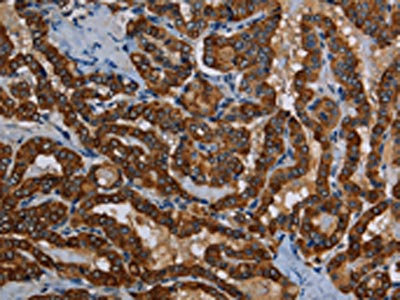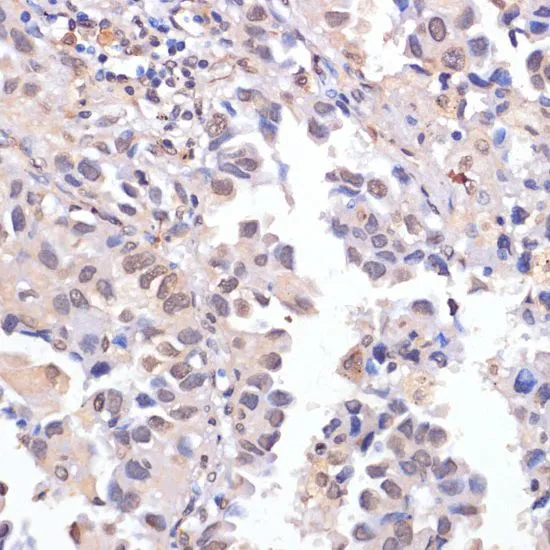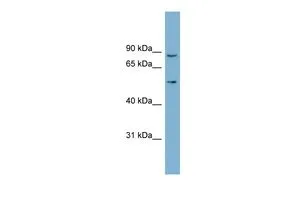
WB analysis of human fetal liver tissue using GTX44938 LRDD antibody at 0.2-1μg/ml.
LRDD antibody, N-term
GTX44938
ApplicationsWestern Blot
Product group Antibodies
ReactivityHuman
TargetPIDD1
Overview
- SupplierGeneTex
- Product NameLRDD antibody, N-term
- Delivery Days Customer9
- Application Supplier NoteWB: 0.2-2.5 ug/ml. *Optimal dilutions/concentrations should be determined by the researcher.Not tested in other applications.
- ApplicationsWestern Blot
- CertificationResearch Use Only
- ClonalityPolyclonal
- Concentration0.5-1 mg/ml
- ConjugateUnconjugated
- Gene ID55367
- Target namePIDD1
- Target descriptionp53-induced death domain protein 1
- Target synonymsLRDD, MRT75, PIDD, p53-induced death domain-containing protein 1, leucine-rich repeat and death domain-containing protein, leucine-rich repeats and death domain containing, p53-induced protein with a death domain
- HostRabbit
- IsotypeIgG
- Protein IDQ9HB75
- Protein Namep53-induced death domain-containing protein 1
- Scientific DescriptionThe protein encoded by this gene contains a leucine-rich repeat and a death domain. This protein has been shown to interact with other death domain proteins, such as Fas (TNFRSF6)-associated via death domain (FADD) and MAP-kinase activating death domain-containing protein (MADD), and thus may function as an adaptor protein in cell death-related signaling processes. The expression of the mouse counterpart of this gene has been found to be positively regulated by the tumor suppressor p53 and to induce cell apoptosis in response to DNA damage, which suggests a role for this gene as an effector of p53-dependent apoptosis. Alternative splicing results in multiple transcript variants. [provided by RefSeq, Aug 2010]
- ReactivityHuman
- Storage Instruction-20°C or -80°C,2°C to 8°C
- UNSPSC41116161







